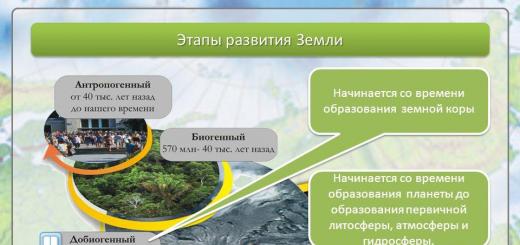And now you need to ask where the nearest pharmacy is, but this word - "pharmacy" completely slipped my mind... You find it in the dictionary and indignantly hit yourself on the forehead: “Pharmacy! Exactly! How could I forget this?!”
Sound familiar? English words are forgotten or simply end up in the PASSIVE vocabulary. The question arises: how to learn English words quickly, easily and, most importantly, effectively? Get ready: a huge one awaits you, but the most complete and useful article on this topic.
To compile 8 rules for learning English words, we surveyed 6 experts. Two methodologists: Olga Sinitsina(Head of Methodology and Content Department) and Olga Kozar(founder of the English with Experts school).

And four language practitioners: Alexander Belenky(traveler and famous blogger), Dmitry More(professional translator and author cool video blog), Marina Mogilko(co-founder of the LinguaTrip service and author of two vlogs) And Ksenia Niglas(Cambridge graduate, Fulbright scholar and also popular video blogger). They will use personal examples to illustrate our rules.
Table of contents of the article (it really is very big):
What English words should you learn first?
Our answer will be useful to both beginners and seasoned students, because we often step on the same rake...
Rule #1 – Learn only the words you need!
When you learn a new language, the temptation is so great to memorize something like this: "superficial", "fade", "piercing" etc. Perhaps you will be able to shine if you come across sophisticated interlocutors.
But why do you need a word "savor", if you don't know 3 verb forms "eat"? For what "fulminant" if you don't know the words "speed"? Do you need sophistication if the basic vocabulary still doesn’t fly off your teeth?
 In the later years of university, we studied specific vocabulary on the topic “International Relations” (my specialty is “International Relations and American Studies”).
In the later years of university, we studied specific vocabulary on the topic “International Relations” (my specialty is “International Relations and American Studies”).
At the end of the 4th year we went to the states under the Work and Travel program. One day I see my classmate sitting thoughtfully. I asked what happened, and he said: “For four years now we have been going through all sorts of complex concepts like “a treaty on the non-proliferation of nuclear weapons” or “detente of international tension.” But today at work I realized that I don’t know how to say “bucket” in English.
By the way, those complex terms were never useful to me. So not all English words and topics are truly useful.
WE RECOMMEND: Don’t waste time and memory resources on words that you don’t actively use in your native language. It’s better to use the saved energy to practice and repeat words that have already been studied and are truly needed. Go through and remove excess from there without a twinge of conscience.
What then to teach? Base + area of interest
The required vocabulary is compiled according to the formula: base(high-frequency words that are used by all people, regardless of profession, interests, religion, etc.) + words related to your interests and language learning goals(why do you need English?).
At the same time, it is better to look for vocabulary in trusted sources, since sometimes something that in fact is not is passed off as high-frequency.

I remember how at school we learned many different words associated with the traditions of English-speaking countries. These words have never been useful to me in my life.
For example, the word “shamrock” stuck in my memory, but I never used it.
It’s easier to ask as the situation progresses what a certain word means than to try to prepare yourself for all sorts of traditions (and to ask, you just need frequency vocabulary - approx. author).
Where will we look for basic English vocabulary?
1. Study lists of high-frequency English words. No need to go far: Lingualeo has lists of words and frequency words. If your language level is already higher, then take larger lists, for example, The Oxford 3000.
2. “Take out” words from adapted literature. This is why it is called adapted because rare and complex words are replaced with simple and high-frequency ones. You will find a selection of 16 cool books adapted by English-speaking experts.
3. Study news in an adapted language. The principle is the same as with books: read the news (you can find them on the website learningenglish.voanews.com) and write down unfamiliar words. Use ours to immediately translate them and add them to the dictionary.
It is better to have news, literature, etc. adapted by English-speaking experts: you will be sure that this vocabulary is actually used in life.
 I remember a school course where we were taught that breakfast is breakfast, lunch is dinner, dinner is supper.
I remember a school course where we were taught that breakfast is breakfast, lunch is dinner, dinner is supper.
In practice, it turned out that not only does no one speak supper, but no one even understands.
It turned out to be a fairly local British word.
In fact, lunch is lunch, and dinner is dinner.
Where to look for words for your area of interest
As an answer, I’ll tell you a case: in the summer of 2016, our communications director went to the Olympic Games in Rio as a volunteer. She was appointed as a translator for the beach volleyball section. Her English is excellent, but she did not know sports terminology.
To prepare, Katya watched volleyball videos in English from the Games in London. So all the necessary vocabulary was at her disposal.
Dmitry More shared the same experience: to prepare for the wheelchair volleyball project, he watched recordings of the Paralympic Games, read articles in English, etc. Ksenia Niglas learned vocabulary for her bachelor's work in the same way. I think you understand our recommendation :)
Another cool tip from Marina Mogilko:
 I recommend it to guys who are learning English for a specific area according to its theme and watch-watch-watch in the original, because such a movie is filled with the necessary vocabulary.
I recommend it to guys who are learning English for a specific area according to its theme and watch-watch-watch in the original, because such a movie is filled with the necessary vocabulary.
There, these words are constantly repeated, and if you hear a word in context 3-4 times, it is etched in your memory.
So, while watching House, M.D., I picked up medical vocabulary, and with the TV series Suits I unconsciously memorized legal words.
Rule #2 – Learn more verbs!
Especially at the beginning of learning a language. Any noun can, in extreme cases, be described with the words “such a thing that ...” - and then a description of the actions.
Gina Caro in her book “English for Our People” describes an exercise: look around and describe in English, using verbs, all the nouns that come up:
a bed is the thing on which I sleep, a chair is where I sit, a table is where I eat, etc.
All the verbs that come up are good verbs, they are worth remembering. The only noun you'll need is thing.
Rule No. 3 – Learn stable phrases!
These are combinations of words that are natural for a native speaker. For example, take a photo, but not do a photo, fast food, but not quick food etc. We have already dedicated this rule, in which you will find a list of phrases + dictionaries, where there are even more of them.
Why is this important: a person who does not speak a foreign language well first thinks in Russian, and then translates these thoughts into English. But the norms for combinability of words in these languages are different.
Imagine: you need to explain that your car has a flat tire. You go to Google Translate and type in the word "lowered" (or "lowered"), and the translator will give descended (or deflated). But there is a stable phrase for this situation.
One day, when I was traveling in America, I got a flat tire. For a long time I could not figure out how to explain this.
And only then did I hear from the specialist consulting me the expression “flat tire” (which translates to “flat tire”). Then I remembered it firmly.
Although before that I associated the word “flat” with the word “apartment”. But this is the British version, in America an apartment is called only apartment.
WE RECOMMEND: learn more stable phrases. Google collocations examples or common collocations and study the results. Or just read it. In addition to learning phrases, we recommend memorizing entire phrases. Teach them in the form in which you will use (1 l. unit). This is the advice of the polyglot Kato Lomb, whom we are talking about.
How to learn English words quickly and easily
From the previous part of the article it is clear that the sources of new words are English-language materials and sets of words / dictionaries. And so you learn, for example, a phrasal verb to get down. At this stage, typical mistakes begin.
Rule #4 – Learn words only in context!
Suppose verb to get down I first came across it in a song by KC & The Sunshine Band. You wrote it down on a card and noticed that in addition to the meaning used in the song “let’s have a blast, let’s light it up” the verb has others: make someone unhappy, take note of someone, leave the table after eating and etc.
"How cool! In one word I will cover so many necessary meanings!”- you think and begin to memorize all the meanings en masse.
And the wonderful musical context with disco rhythms has already been forgotten, and the word has become a set of letters with a dozen unrelated meanings... Alas, most likely you will not remember this word when you need it.
WE RECOMMEND: learn to ignore that this or that word has other meanings besides the only one that you need right now. Let this word exist only in the context in which you met it. If elsewhere you see to get down with a different meaning, well, you’ll go back to the dictionary. But even then, don't get stuck thinking it's the same word. Let them exist separately in your mind, each in its own context.
If we found the word in English-language materials?
Then keep this context in mind. Parse the lyrics of your favorite song, add the word to your study list, and the context will always be with you.

I added this word is from a song by The Rolling Stones .The line at the bottom of the vocabulary card will always remind me of the context.
If we take a word from a list like “Top 100 Frequent Words”?
Then we immediately put the word back into context. According to scientists, we need to see each word 7-9 times in different situations in order to remember it. There are a huge number of sources for these situations. For example, English-language explanatory dictionaries always provide words with good examples. These are Cambridge Dictionary, Oxford Dictionary, Oxford Learner's Dictionaries, etc.
By the way, in them (explanatory dictionaries) it is best to look up the meaning of a new word for you (namely MEANING, not TRANSLATION), because this way you will be protected from all sorts of uncomfortable situations.
 One day one of my students came to class after training and when asked “How are you?” answered “My press hurts.”
One day one of my students came to class after training and when asked “How are you?” answered “My press hurts.”
Indeed, if you go to, say, Google Translate and type in the word “press”, it will give the answer “press”. But the problem is that the “press” is a hydraulic press. And the one that hurts is the abdominal one.
And in the English-English explanatory dictionary you will immediately see that “press” is not what you need.
Another source of context is search engines in English-speaking countries, for example, google.co.uk or google.com.au. You type a word into a search engine and see in what situations it is used.
The third source is English language corpora (specially prepared text databases with standard English). The most popular: “Corpus of British English” and “Corpus of American English”. You need to work with them the same way as with search engines: you type in a word and study examples.
Once you have found a suitable example (context) for yourself, you can add it to your word.

Learn English words online
WE RECOMMEND: never learn the “lonely” word! When you start learning a new word, first of all, find good examples for it, the right context. To, firstly, remember it better; secondly, use it correctly and combine it with other words.
Rule No. 5 – Use intralingual connections!
Some English words may have distant relatives in other languages - French, German and even Russian. Also, the word probably has close relatives in its own language - these are words with the same root, like ours: table, dining room, feast etc. You can look for such “connections” in special etymological dictionaries, for example etymonline.com.
Also look for synonyms (similar in meaning) and antonyms (opposite). The explanatory dictionaries above will help you with this. And catch another one: dictionary.com.
WE RECOMMEND: for new words, especially rather complex, abstract ones, look for context within the language itself: cognates, synonyms, antonyms. All this will help create strong neural connections and associations.
Rule #6 – Come up with your own word examples!
You did everything according to the rules: you found an example, together with it you “placed” the word in your head, but it is still forgotten... Why? Because it is better to remember what is relevant to you, your personal experience.
When you have learned a word, immediately come up with your own examples for it, or better yet, act out a whole dialogue. Let's remember our to get down(in meaning "break away, light up").
- Let's let's have a blast This Friday! -Will you have time to free yourself? After all, if we want for a long time have a blast, then you need to start early. - Yes. I want to start have a blast at 8, and finish only by morning! etc.
So, along with learning a new word, you will also review the grammar.
 When you yourself have used a word several times, it is remembered forever.
When you yourself have used a word several times, it is remembered forever.
I remember the story of the word oatmeal. On my first trip to Britain, I didn’t know this word. In the meaning of “porridge” I always used the word porridge, as we were taught at school. But no one understood me, because porridge is a very formal, bookish word (no one uses it).
I was corrected once, corrected twice. Then I repeated this word myself several times - that’s all. I haven't forgotten him anymore.
WE RECOMMEND: After you have seen examples of the use of a word, come up with your own context. Based on it, come up with several examples (coherent dialogue or individual sentences) and speak them loudly and clearly. If it’s difficult to come up with a situation, then remember the last time you used this word in real life, and reproduce this situation in English.
How to learn English words online: simulator
How not to forget a new word?
If you learned the word in accordance with these rules, then it will settle in your head for permanent residence. But! If you do not use it in your speech for a long time, over time the English word will migrate from active to passive vocabulary. How to avoid this?
Rule No. 7 – Come up with a bright association for yourself!
This will especially help with abstract concepts, long and difficult to spell words, etc.
For example, our service has a special field for entering associations. For those with associative thinking and developed visual memory, this is simply a godsend: close your eyes and remember this phrase.

Here's my stupid example for the word admiration. “Admirate” is a fiction based on the word “die.” Silly, but it works for me.
Rule #8 – Use spaced repetition!
In repetition, the main thing is not the character (HOW to repeat), but the timing of the training (WHEN to repeat). It is better to do this when you are about to forget what you have learned. These moments of forgetting were established by the German psychologist Hermann Ebbinghaus, who derived the so-called “forgetting curve.”
Let's say you've learned the word. Repeat it a few minutes after that, then after a couple of hours, then every other day, then after 2 days, then after 5 days, then after 10 days, 3 weeks, 6 weeks, 3 months, 8 months, etc. .d. After a while, the word will stick firmly in your head.

Let's summarize. How to learn English words every day - program
- Learn only the words you need! This is the base + specific vocabulary for your area of interest. Also learn more verbs, stable combinations and whole phrases. You can find all this in special sets, dictionaries and materials in English (adapted for the base, thematic for special vocabulary).
- Learn words only in context! If you “get” a word from an article, song, etc. – then keep it in mind with this context. If you take a “lonely” word, look for a context for it. And under no circumstances try to learn all the meanings of a polysemantic word at once! You will only get confused and lose touch with the main thing - the context.
- Try to immediately apply the word in life! If there are no communication situations in English yet, then come up with your own examples: act out a scene with this word, remember a real life situation related to it. Remember that for strong memorization you need to encounter the word 7-9 times in different situations, preferably in those that are related to experience close to you.
- So that the word is not forgotten, come up with a vivid association for it: graphic, auditory, funny, stupid - it doesn’t matter. The main thing is that it matches your type of thinking (are you auditory? visual? kinesthetic?) and works for you.
- Keep repetition frequency to a minimum by using the spaced repetition method.
Have you even noticed how many pages you have written?!
You may think this is too long. Is it easier to just memorize the cards and hope for their “magic” effect.

You promised to tell me how to learn words in English fast!
But the same Lingualeo is TOOL, which gives you the opportunity to add an example (context), your own picture and association. The ability to take a word out of that very context () and drive it away from all sides.
But This tool can be used in different ways. You can mindlessly run through word cards in the hope that they will come to mind when needed. Or you can take responsibility for learning and take it seriously.
Then you will not only recognize the word in the picture (passive dictionary), but also be able to use it in speech (active dictionary).
P.S. As you can see, this article does not provide “magic tricks” or “easy methods” (by the way, such do not exist). Instead, she talks about the seemingly obvious rules of how our memory works, which many have forgotten about in the pursuit of speed. If the article turned out to be truly valuable and useful, share it with your friends and make their English learning more effective.
Today, self-development in the form of learning languages and going to the gym is literally considered a trend that everyone is trying to keep up with.
All you can hear from everywhere is “Don’t give up!”, “Be better than yesterday!”, “Work on yourself!”. If you don’t have a perfect figure, everything is clear here - you need to maintain proper nutrition and build muscles. However, is everything so simple in learning English? Let's see.
If you have gaps in English, you should improve your grammar and expand your vocabulary. What to do if your memory is bad and all these words can’t fit in your head? Is it possible to upgrade memory? The answer will pleasantly surprise you - you can.
Of course, some people will be able to quickly learn a number of new English words just by looking at them, while others will have to make an effort. It all depends on your desire.
In order to understand how you can pump up your memory, it’s worth taking into account several of your own characteristics - everything is individual. As you know, there are two types of memory - someone perceives new things auditorily, and others visually. There is one secret technique that we intuitively know at school, but over time we forget.
Remember how during recess, repeating a verse, you walked from corner to corner with a textbook. Indeed, movement helps to remember new things. And of course, memorization is significantly influenced not only by speed, but also by the quality of memorization or the level of attention. It is important to concentrate on what you are learning here and now, and not fly in the clouds.
Understanding what memory is, it becomes obvious that by working on yourself, adding more self-discipline, you can develop your memory and easily learn the required number of new memorizations of English words. All the excuses you've used so far aside, it's time to get your act together and take the leap to learn English.
How to quickly learn English words
1. Learn words from context.
It is quite difficult to learn words if they are listed in the dictionary. This method can only be used if you are studying with a teacher who will help you use these words in context, build a dialogue with you using these new words, and transfer the list of new words from your passive vocabulary to your active one.
If you are at the stage of learning English on your own, then it is best to memorize words in the context of a topic that interests you.
In this method of learning new words, two types of memory work - visual and auditory. Subtitles are important because they will help you be 100% sure what the word was just said and how it is spelled. Agree, it is difficult to remember something that you are not confident enough in.
If you study English with a teacher, then he will definitely include podcasts in your classes, which are also a magic wand for expanding your vocabulary.
3. Don't grab every new word.
When learning words, you shouldn’t grab every new word and run to write it down in the dictionary. If only because the number of words in the English language is incredible!
To begin with, it is best to memorize the base of words that you need, depending on your age and lifestyle. Of course, an experienced English teacher will be able to point you in the right direction and tell you what to focus on.
However, you can try and independently determine what you should concentrate on and what words you can omit.
4. Read.
You may be surprised, but now we are not even talking about reading in English, but about reading in our native language. It doesn’t matter whether it’s fiction or quality articles.
Reading helps make your thinking more flexible and develops your memory, thereby improving your memorization of new words in English.

5. Learn words in combination with grammar.
Many people believe that the main basis of English is words, and you don’t have to work much on grammar. Perhaps someday in a parallel universe this myth will be dispelled, however, now it still exists.
Just imagine, if you know the conjugation of verbs, how many new words you will immediately recognize. For example, if you do not perceive that all these new words in the text are just the first or second form of an irregular verb, they all seem new to you and confusion arises.
6. Learn English with the help of modern technologies, away with old-fashioned flashcards!
Fortunately, the world of modern technology is conducive to learning new words. For example, on our website there is a dictionary in a completely free format that will help you learn new words, memorizing them aurally and visually. Learning takes place rather in a playful way, which helps make the process of memorizing new words much more enjoyable.
In order to remember an English word faster, you can draw a certain parallel with it in your mind. It doesn’t matter whether it will make sense to someone else, the main thing is that it carries a certain message for you and, remembering this association, you could remember a new word.
For example, the word "sing" is somewhat similar to the word Singapore. A parallel can be drawn with the phrase “singing in Singapore”. In this method, only your fantasy and imagination are important, add creativity.

8. Pay attention to words of common origin.
Words of common origin in different languages, cognates, seem to have been created to instill the belief that learning a new language is not as unattainable as it might seem at first glance. When learning new words, you will personally see that many English words are similar to Russian ones.
9. Communicate with native speakers.
It's no secret that the easiest way to learn a language is in an environment where it is spoken. However, you don’t have to go to another country to do this. You can find yourself a pen pal or call him on Skype. Communication with a native speaker will be very useful when learning new words.
There are even many websites where people from different countries offer to improve your English for free, in exchange for learning something from your native language. However, it is better to use this technique when you already have fairly confident English. At the initial stage, it is better to contact a professional teacher so that he can guide you in the right direction.
10. Use the S.M.A.R.T goal system.
Set goals when learning new words in English and you will see progress. It's much more enjoyable to learn English by noticing your progress. S.M.A.R.T. stands for Specific, Measurable, Attainable, Relevant and Time-Bound - i.e. specific, measurable, achievable, relevant and time-bound.
Promise yourself that in the next month you will learn 70 new words that are most in demand in the English language.

11. Speak and think like a native speaker.
When learning new words, pay attention to the accent and intonation with which the word is usually pronounced. Try to imitate these elements at the very beginning of learning the language. In the future, this will greatly help you overcome the barrier of communication with native speakers.
12. Don't be afraid to make a mistake.
In order to speak competently, it is not necessary to remember all the words that exist in English. It is enough, for starters, to master the basic base of words, of which there are about 300. Having studied the base, you will be able to express an idea even without knowing any word using the paraphrasing technique.
Learning a language no longer seems so out of reach. Is not it?
By the way! We recommend reading our article on how to quickly learn English. Not everything is so simple :)
How to help your child remember English words easily
What can you do to help your child learn new words?
There are many memory poems that will greatly simplify the process of learning English for children. Can methods for memorizing new words developed for children be used by adults?
Yes! Both children and adults can learn language through nursery rhymes.
For example:
We were given red tomatoes for lunch!(red)
And a lemon, when it is ripe, has a yellow skin!(Yellow)
I love running around the city in blue jeans!(Blue)
Orange means orange, the color is the same, we will eat it.(orange)
Let's call the mouse gray, he will be the gray mouse.(Gray color)
Black - our black master, as always, came alone.(Black)
Green - green grass, it grew on its own.(Green)
Brown is a new chocolate, I'm happy with brown.(Brown)
White color - white and snow.(White)
You can help children learn new words by studying the rhyme and demonstrating the objects discussed in the poem. This technique will be useful when working on the following poems:
This is a bear, this is a hare,
This is a dog and this is a frog.
This is a car, this is a star,
This is a ball and this is a doll.
One, two, three, four, five,
Once I caught a fish alive,
Six, seven, eight, nine, ten,
Then I let it go again.
Why did you let it go?
Because it bit my finger so.
Which finger did it bite?
The little finger on the right.

With the help of poems, you can learn not only new words, but also remember temporary structures. For example:
To have
I have a father,
I have a mother,
I have a sister,
I have a brother.
Father, mother, sister, brother -
Hand in hand with one another.
Using this rhyme, you can work out the construction of the question:
How to learn English words for business
Don't be afraid, everything here is the same as in learning general English. The main thing is to select the necessary sources of study. It is worth focusing on videos on a topic that is relevant to you.
When choosing a textbook, you should also consider the business area you need. By studying business English with a teacher, he will help you place all the accents correctly and focus on the topics that you need, be it business, aviation or agriculture.

Do you need a mentor? Of course no one can say, for example, how to learn English words in 5 minutes;) But m We will select the best teacher who will lead you to results. Set goals and achieve them! Nothing is unattainable, the main thing is to set your priorities correctly and understand what to work on.
Good luck on your way to perfection!
Big and friendly EnglishDom family
Do you want to improve your spoken English? Learning colloquial phrases and expressions is exactly where you should start!
This article contains everything you need in a conversation on absolutely any topic. You will make your speech richer and more varied, and your communication with people more enjoyable and exciting!
Greetings and farewells
Of course, you can always get by with the words “Hello”, “How are you?” and “Goodbye”, but there are also more varied ways to say hello and goodbye, especially in a friendly environment (for example, in a group):
| How is it going? | How are things going? |
| How's life? | What's up? |
| How are things? | How is it? |
| Long time no see! | Long time no see! |
| What are you up to? | What are you doing? |
| What have you been up to? | What have you been doing all this time? |
| See you soon! | See you later! |
| See you later! | See you later! |
| Till next time! | Until next time! |
| Good luck! | Good luck! |
| Take care! | Take care of yourself! |
| Talk to you later! | We'll talk to you later! |
| Until we meet again! | See you! |
| Have a nice day! | Have a good day! |
| Have a good weekend | Good weekend |
| Have a safe trip | Have a good trip |
| Say hi to... | Give my regards to … |
| Send my love to… | Say hello... (if we are talking about relatives or close people) |
Introductory words
They make sentences more coherent and help the interlocutor follow your train of thought. They also give time to find words without creating long pauses in speech.
| In short / in brief | in short |
| In a word | in a nutshell |
| As far / as to | concerning |
| Not to mention | not to mention |
| First of all/ above all | first of all |
| What's more | Besides |
| By the way | By the way |
| After all | eventually; after all |
| Just for the record | for reference; so that you know |
| And so on and so forth | and so on |
| If I'm not mistaken | if I'm not mistaken |
| In other words | in other words |
| On the contrary | vice versa |
| The thing is | The fact is that |
| So as to / so that | so that |
| Either way | anyway |
| As a rule | usually, as a rule |
| As well as | as well as |
| All the same | doesn't matter |
| On one hand | On the one side |
| On the other hand | on the other side |
| Such as | For example |
| As I said before | as I already said |
| Believe it or not, but | believe it or not, but |
| If I remember rightly / If I recall correctly | If I remember it right |

Ways to express agreement or disagreement
There are many shades between “yes”, “no” and “maybe”. If you want to avoid direct refusal or, on the contrary, express your enthusiasm, these expressions will help you:
| Perhaps | Maybe, maybe |
| Of course / Sure | Certainly |
| Definitely | Definitely, definitely |
| Absolutely | Undoubtedly |
| Naturally | Naturally |
| Probably | Probably |
| You are right | You're right |
| It can hardly be so | This is unlikely to be the case |
| Very well | Very good |
| Most likely | More likely |
| Most unlikely | Hardly |
| Not a bit | Not at all |
| I believe so / suppose so | I guess that's true |
| I doubt it | I doubt |
| No way | No way, no way |
| Exactly so | Exactly |
| Quite so | Quite right |
| I agree with you | I agree with you |
| I am afraid you are wrong | I'm afraid you're wrong |
| I'm afraid so | I'm afraid so |
| I'm not sure | Not sure |
| I don't think so | I don't think so; hardly |
| In a way / to a certain extent | In a sense |
| No doubt | Undoubtedly |
| I'm in / I'm game | I am “for” (in response to a suggestion to go somewhere or do something) |
| I think I'll pass | Better without me |
| Deal! | It's coming! |
| It's a great idea! | Great idea! |
| Not a very good idea | Not a good idea |
| I'm looking forward to it | I'm looking forward to it |

Polite phrases
Always nice in any language. Rest assured, your interlocutor will appreciate knowing these phrases, whether it be a thank you, an apology, or just a simple courtesy.
| I'm so sorry! | I'm really sorry! |
| I beg your pardon! | I'm sorry! |
| I’m sorry, I can’t. | Sorry, I can't. |
| Sorry, I meant well. | Sorry, I wanted the best. |
| It's very kind of you! | It is very kind of you! |
| Thank you anyway! | Anyway, thanks! |
| Thank you in advance! | Thanks in advance! |
| Don't mention it! | Do not mention it! |
| May I help you? | Can I help you? |
| No problem / that’s ok! | Everything is fine! |
| Don't worry about it! | Don't worry about it! |
| This way, please! | Here please! |
| After you! | After you! |

Ways to keep the conversation going and respond to what is said
Undoubtedly, the most popular colloquial reaction is the word “Really?” Depending on the intonation, it can express a variety of emotions, from sarcasm and irony to surprise and sincere delight. But, of course, there are other ways to show interest in what is being said:
| What's the matter? | What's the matter? |
| What's going on? / What's happening? | What's happening? |
| What's the trouble? | What is the problem? |
| What's happened? | What's happened? |
| How was it? | So how? (How did everything go?) |
| Did I get you right? | Did I understand you correctly? |
| Don't take it to heart. | Don't take it to heart. |
| I didn't catch the last word. | I didn't understand the last word. |
| Sorry, I wasn’t listening. | Sorry, I listened. |
| It doesn't matter. | It does not matter. |
| It is new to me. | This is news to me. |
| Let us hope for the best. | Let us hope for the best. |
| May I ask you a question? | Can I ask you a question? |
| Next time lucky! | Better luck next time! |
| Oh, that. That explains it. | That's it, that explains everything. |
| Say it again, please. | Could you repeat it, please. |
| So that’s where the trouble lies! | So that's the thing! |
| Things happen. | Anything can happen. |
| What do you mean? | What do you have in mind? |
| Where were we? | Where did we leave off? |
| You were saying? | Did you say something? |
| I’m sorry, I didn’t catch you. | Sorry, I didn't hear. |
| Lucky you! | What a score! |
| Good for you! | So much the better for you! (In this phrase, a lot depends on intonation; it often implies sarcasm: “Well, well, I’m glad for you!”) |
| I'm so happy for you! | I'm so happy for you! (But this is said absolutely sincerely) |
| What do you know! | Who would have thought! |

It is a basic condition for mastering a foreign language. It is necessary not only to talk with its speakers, but also to be able to effectively study it, increase the level and quality of your knowledge, for example, by working with original, unadapted literature.
How many words can you learn per day: myths and reality
The advertising content of various sites created for independent learning of foreign languages, as well as information banners of language schools, are full of information about the emergence of super technologies that allow you to learn a language in a few days.
To everyone’s chagrin, the presented “technologies” are nothing more than long-known methods of learning a foreign language.
And the main one is regular repetition:
- Make a list of words to memorize;
- Read it carefully;
- Leave the list for 20 minutes and do other things;
- Repeat the cycle 7 times.
The most effective time of day for memorization is the evening, the time before going to bed. In a dream, the brain, not distracted by external thought processes, transfers words from quick memory to long-term memory.
Is it realistic to learn 50-200 words a day?
From a theoretical point of view, it is real. To read 100 words, it takes about 25 minutes. To repeat them 7 times, after reading - about another 175 minutes (3 hours).
But since between repetitions it is necessary to pause, also equal to about 20 minutes, the total time required to memorize 100 foreign words per day will be 7 hours.
If you have so much free time that you can devote to thoughtful repetition of English words, then there is a chance that it is realistic for you to learn from 50 to 200 words per day.

However, it is also worth paying attention to the following fact: the average person is able to remember from 5 to 10 words a day.
Thus, you must not only be unburdened by work and any extraneous worries, but a person, you must always be a free prodigy, with a phenomenal memory.
Moreover, after such experiments you may develop a negative attitude towards English: you are unlikely to experience positive emotions from trying to master such a volume of knowledge.
- Keep a personal dictionary in which you will write down the words you have learned. Divide the vocabulary into two levels: simple and complex words. During the learning process, subjectively assign a word to one level or another and write it down in the appropriate section. This will help you approach the process of learning foreign words more effectively.
- Use cards. You can lay them out on your desktop, hang them around your apartment at eye level, or purposefully teach them at a set time.
- Read a lot. This will allow you to consolidate the words you have learned in your long-term memory.
- Use specialized, which are written specifically for the purpose of expanding the student’s vocabulary.
- Make mind maps. This technique is nothing more than a thematic grouping of words. However, the inherent clarity of the method significantly increases its effectiveness over similar classical methods.
- Get yourself a pen-friend and expand your vocabulary with him. Basically, when communicating, people use words from common use. And the desire to tell a friend about your hobbies will motivate you.
- Download to your mobile device, to be able to regularly repeat words in a free minute.
- Use gaming services which will help you learn words online.
- Memorize your favorites or . Songs for learning English help to develop phonetic skills in students, develop phonemic awareness, and simplify the process of learning the rules of pronunciation of foreign sounds. Also, studying and understanding the intonation of a song contributes to the formation of auditory skills in the perception of foreign speech.
For example, games:
- Bank Robber– designed to expand vocabulary and train memory. The main task is to guess the word before a bank robbery occurs.
- Memory Game– develops vocabulary and visual memory. The main task is to remember the location of the item and guess it when the cards cover all the cells.
What words to learn in English?
Preferences in the formation of your vocabulary should be based on the purpose of learning the language:
- If you wish to be free with its carriers– study, as well as dialectisms inherent in representatives of the region or country you like.
- If you want to learn a language to work abroad, communicate with business partners, or study at a foreign university, you need to learn professional vocabulary in addition to everyday words.
Thus:
- If your goal is to learn a language to communicate with foreign friends, Feel free to use the information available on the World Wide Web.
- If you need professional vocabulary, then it is advisable to draw up a methodological one. In any case, your work will not be in vain; regular repetition of words, while sampling them, will allow you to learn them much faster.
It is also worth noting that many companies personally create dictionaries with a set of words, phrases or phrases necessary for work. Contact the company where you want to work. It is possible that they will be happy to provide you with this information.
The most important words in English
The most important words in any language are the common words. Their list includes both , and , and , and .

Linguists and psychologists have compiled more than one list of the most common words in the English language, divided by parts of speech.
However, there is no point in memorizing lists of “top” words used by English-speaking people. It is much more important to learn how to use them in speech.
Therefore, select a speech construction for each word that will reflect the peculiarities of its use with one or another part of speech.
Key words:
- Pronouns- I, you, he, she, it, we, they, me, him, her, us, them
- Articles- the, a/an
- Prepositions- to, for, of, out, from, with, over, at, up, but
- - about, now, just, not
- - and
- Verbs- get, was, is, have, don`t, do, are, went, can, would, go, think, say, be, see, know, tell
How to turn learning English into a habit?
Scientists have proven that it takes 21 days to form a habit. In this regard, in order for daily replenishment of your vocabulary to become a habit for you, akin to brushing your teeth in the morning, you need to learn at least one English word during the 21st day.
Of course, the general amount recommended for learning foreign words is from 5 to 10 words per day. In this case, your vocabulary will grow quickly and in a few months you will be able to master the required minimum vocabulary - this is about 100-150 words of each part of speech.
However, there are times when there is absolutely no time. But you shouldn’t leave the idea for later; it’s enough to learn at least one word every day for the habit to form.
If you find it difficult to force yourself to learn 5-10 words a day at once, start small - learn 1 or 2 words a day, and then gradually increase the load. Then it will be easier for the body to get used to the new regime, and for you to cope with the psychological barrier.
How not to lose acquired knowledge?
For the English language, as for any other, the most important rule for success is regular practice.
- . When your vocabulary is large enough, prefer modern foreign literature to domestic literature;
- Live communication with native speakers. Travel to English-speaking countries as often as possible, either by correspondence;
Thus, the secret to replenishing the vocabulary of any foreign language is very simple - regularity and consistency.
No technique will help you in a few days. Just like you learned your native language by learning word by word and then stringing them together into sentences.
reading them in Russian letters - 22 interpretations of the difference
- it (it) is a calm word. this (zis) - this is the emphatic word, exactly this. It is a pen. - this is a PEN, this is a pen - THIS is a pen.
- something (samsin) - anything, in a statement. anything (enisin) - anything, in question and negation. Do you have ANYthing? I don't have ANYthing.
- all (ol) – everything or everything, if decryption comes next. everything (eurysin) - everything, without decoding. I will buy ALL that we need. I will buy EVERYTHING. exceptions: All right, That’s all.
what(wot)- What, What will you drink?
what + noun - what, What wine will you drink?
who (hu) - who
where (uea) – where, Where do you live?
where + verb of movement – where, Where will you go?
why (why) - why
when (uen) - when
how (how) - how
how many + what can be counted piece by piece - how much
how much + what is counted in kg, l, packs, pieces - how much
- yes (yes) - yes. not (note) - not. no (know) - no, if it is at the very beginning. no (know) - no, if it comes before a noun or gerund. Do you have any time? NO, I do NOT have any time. I have NO time.
- I have NOthing, NO time, NO smoking - this is a more harsh and categorical option than not ... anything, not ... any time.
about the importance of this list. nature has given us priority needs. If we learn words in the proper order, they will be remembered easily and naturally. If we teach the description of our clothes and apartment or the names of fruits and vegetables before the ability to navigate the terrain and negotiate with other people, then a month or two later there will be almost nothing left of the learned words.
to(that) – to, in(where) I will go to Kiev.
in (in) - in (where) I live in Kiev.
from (from) - from
of (of) - conveys gender. case, someone or something
on (he) - on
with (wiz) - with
without (visout) - without
before (bifo) - before
after (after) – after
between (bituin) - between
near (nie) - near
for (fo) - for
* 32 most important prepositions of place and time
please (plz) — Please
sorry (sorry) - excuse me
you are welcome (you are welcome) - please, you're welcome
hello (hello) - hello.
hi (hi) - hello
goodbye (goodbye) - goodbye, bye
see you (si yu) - see you
and (end) - and
but (baht) - but
or (o) - or
because (bicosis) - because
if (if) - if
that (zet) – what
I (ah) — I
you (yu) – you; You; You
he (hee) - he
she (shi) - she;
it (it) - it
we (ui) - we
they (zay) - they
my (May) - mine
your (е) – yours, yours
his (khiz) - his
her (hyo) - her
our (aue) - ours
their (zee) – theirs
- his (their) + noun = his (their), I love his son.
- his (them) - without a noun = him (them). I love him. I've loved him for a long time. I love him passionately.
do (du) — do Usual things
make (make) - do, manufacture, invent
be (bi) - to be, to be
have (hev) - to have
will (fork) - I will, there will be
live (Liv) - live
come (kam) - to come, to arrive
go (go) – go, go, leave
*
* leave - go - arrive - come - get. difference

can (ken) — be physically able
may (may) - be able, have permission
be able (bi uybl) - to be able, to be capable of complex things
must (mast) - to be due
should (shud) - to be several times weaker.
I must do it. — 100%, I should do it. — I should owe 20%
can - be able to 100%, could - could be 20%
may - could be 100%, might (might) - could be 20%
show (show) — show
see (si) - to see
look (bow) - look
ask (ask) - ask
hear (hie) - to hear
question (question) - question
answer (anser) - answer, answer
explain (iksplain) - explain
meet (mit) - to meet, to get acquainted
give (giv) - give
take (take) - take, pick up, carry away
call (number) - to call on the phone, to call
send (send) - send
get (get) - to receive, to get
invite (invite) - invite
stand (stand) - stand
work (work) - to work
say (say) - say something
tell (tel) - tell someone something
speak (speak) - talk, talk
talk (current) - talk, a more colloquial word
- if after “talk” it immediately comes ABOUT something or WITH someone, choose speak or talk.
- otherwise tell or say. I spoke / talked with him / about work. I told him that I could do it. I told him that I could do it.
* look - see - watch, listen - hear, speak - talk - tell - say. difference
here (hie) – Here; here
there (zee) – there; there
now (nau) - now, now
already (allready) - already
still (steel) – still, in a statement
yet (yet) – yet (not), in negation
I am STILL at home. I am NOT at home YET.
such (sach) - such
so (sou) - so
every (every) - everyone
very (very) - very
many (many) - many + plural word
much (much) - a lot + word in singular
few (phew) - few + plural word
little (little) - little + singular word
- few - few and not enough, not enough. And few is a few and enough.
- little - a little and not enough, not enough. And little is a little and enough.
- SOME - several, a little. it is more than A few or A little, it is always enough.
name (name) — Name
address (edres) - address
phone number (phone number) - phone number
age (age) - age
married (merrid) - married, married
letter (letter) - letter
email (email) - email
people (people) - people
man (man) - man
woman (woman) – woman
child (child) - child
boy (fight) - boy
girl (girl) - girl
friend (friend) - friend
job (Job) — paid work
work (work) - work as employment
teacher (teacher) - teacher
driver (driver) - driver
worker (worker) - worker
engineer (engineer) - engineer
doctor (doctor) - doctor
nurse (nurse) - nurse
shop assistant (shop assistant) - seller
accountant (accountant) - accountant
student (student) – student
pupil (puple) - schoolboy
* 150 job responsibilities of an office worker. En-Ru
family (family) — family
parents (parents) - parents
father (phaser) - father
mother (maser) - mother
husband (husband) - husband
wife (wife) - wife
son (san) - son
daughter (doter) - daughter
brother (brother) - brother
sister (sister) - sister
grandfather (grandfather) - grandfather
grandmother (grandmother) - grandmother
uncle (uncle) - uncle
aunt (ant) - aunt
eat (it) — eat, eat
drink (drink) - drink
cook (cook) - cook; prepare
sell (sel) - sell
buy (buy) - buy
price (prize) - price
money (money) - money
find (find) - find
fall (foul) - to fall
read (read) - read
play (play) - play
think (sync) - think
want (want) - want
know (know) - to know
feel (phil) - to feel
be sure (bi shuer) - to be sure
get (get) - become, receive, get there
* logic of the verb GET, explaining its 50+ meanings
time (half) – time
year (year) - year
week (week) - week
hour (auer) - hour
minute (minimum) – minute
yesterday (yestedey) - yesterday
today (today) - today
tomorrow (tomorrow) - tomorrow
holiday (holiday) - holiday
morning (morning) – morning
day (day) - day night (night) - night
Monday (Monday) — Monday
Tuesday (Tuesday) - Tuesday
Wednesday (Wednesday) - Wednesday
Thursday (Sourday) - Thursday
Friday (Friday) - Friday
Saturday (Saturday) - Saturday
Sunday (Sunday) - Sunday
month (mans) — month
January (January) - January
February (February) - February
March (March) - March
April (April) - April
May (May) - May
June (June) - June
July (Julai) - July
August (ogest) - August
September (September) - September
October (oktouber) - October
November (november) - November
December (disembar) - December
sleep (slip) — sleep
wake (wake) - wake up
wash (wash) - wash, wash
try (try) - try, try
find (find) - find
bring (bring) - to bring, to bring
smile (smile) - smile
cost (cost) - cost
learn (learn) - learn
teach (tich) - to teach
write (right) - write
change (change) - (from) change
close (close) - close
open (open) - open
dance (dance) - dance
collect (collection) - collect
love (love) - to love
draw (draw) - draw
choose (chuz) - choose
thing (sing) — thing
pen (pen) – pen
book (beech) - book
telephone (telephone) - telephone
TV-set (tiviset) - TV
bag (bag) - bag
map (map) - map
card (card) - postcard
camera (kemere) - camera, camera
picture (picture) - picture
paper (paper) - paper
newspaper (newpaper) - newspaper
city (City) — big city
town (town) - small city
flat (flat) - apartment
café (kefey) - cafe
food (food) - food
school (cheekbone) - school
square (square) - area
house (house) - house
river (river) - river
hotel (hotel) - hotel
park (park) - park
bank (bank) – bank
cinema (cinema) - cinema
hospital (hospital) - hospital
market (market) - market
police (policy) - police
station (station) - station, train station
center (senter) - center
shop (shop) - store
surprise (surprise) - surprise
problem (problems) - problem
street (straight) — Street; road
stop (stop) - stop
crossing (crossing) - crossroads
place (place) - place
car (car) - car
tram (tram) - tram
bus (bass) - bus
train (train) - train
plane (plane) - airplane
ticket (ticit) - ticket
season (sizn) — season, time of year
spring (spring) - spring
summer (summer) - summer
autumn (autumn) - autumn
winter (winter) - winter
- in winter, in summer) - in (the) winter, in (the) summer.
- seasons can also be with an article - more often among Americans and without - more often among the British. both options are correct.
weather (weezer) — weather
rain (rain) - rain
wind (wind) - wind
snow (snow) - snow
sky (sky) - sky
sun (san) - sun
color (kale) — color
black (black) - black
blue (blue) - blue; blue
brown (brown) - brown
green (green) - green
gray (gray) - gray
red (red) - red
white (white) - white
yellow (yellow) - yellow
quality (quality) — quality, property
old (old) - old
young (young) - young
new (new) - new
big (big) - big
small (resin) - small
hungry (hangri) - hungry
full (full) – well-fed; full
good (beep) - good
bad (bad) - bad
early (fir trees) - early
late (late) - late
last (last) - last, last
next (next) - next
free (free) – free; free
hot (hot) - hot; hot
warm (warm) - warm
cold (cold) - cold
high (high) - high
tall (tall) – high (about growth)
short (short) – short; short
long (long) – long; long
heavy (heavy) - heavy
light (light) - light; light
dark (dark) - dark
expensive (expansive) - expensive
cheap (chip) - cheap
left (left) - left
right (right) - on the right; correct
fast (fast) - fast
slow (slow) - slow
soft (soft) - soft
hard (hard) - hard
beautiful (beautiful) – beautiful
handsome (hansam) - handsome
careful (keeful) – attentive
sad (sad) - sad
glad (glad) - joyful
happy (happy) - happy
ready (ready) - ready
angry (engry) - angry
main (main) - main, main
number (number) — number, number
figure (fige) - number
one (one) - one
two (tu) - two
three (sri) - three
four (fo) - four
five (five) - five
six (six) - six
seven (seven) - seven
eight (eight) - eight
nine (nine) - nine
ten (ten) - ten
eleven (ilevn) - eleven
twelve (tuelv) - twelve
thirteen (shotin) - thirteen
fourteen (photin) - fourteen
fifteen (fiftin) - fifteen
sixteen (sistine) - sixteen
seventeen (sevntin) - seventeen
eighteen (atein) - eighteen
nineteen (nineteen) - nineteen
twenty (twenty) - twenty
thirty (network) - thirty
forty (foti) - forty
fifty (fifty) - fifty
sixty (sixty) - sixty
seventy (sevnti) - seventy
eighty (atey) - eighty
ninety (ninety) - ninety
hundred (handred) - one hundred
thousand (southend) - thousand
* English dates are pronounced differently than they are written.
== say [sai] - say - said - said [sed]
pay [pay] - pay - paid - paid [payd]
lay [lay] - put - laid - laid [laid]
Drink [drink] - drink - drank [drank] - drunk [drank]
swim [swim] - swim - swam [swam] - swum [swam]
sing [sing] - sing - sang [sang] - sung [sang]
begin [bigin] - begin - began [bigen] - begun [bigan]
ring [ring] - ring, ring - rang [rank] - rung [rank]
Fly [fly] - fly; fly - flew [flu:] - flown [flown]
know [know] - know - knew [new:] - known [noun]
draw [draw:] - draw - drew [drew:] - drawn [draw: n]
throw [srow] - throw - threw [srow:] - thrown [srow]
grow [grow] - grow, grow - grew [gro:] - grown [groun]
Speak [sleep:k] - talk - spoke [spoke] - spoken [spoken]
choose [chu:z] - choose - chose [chouz] - chosen [chozen]
wake [wake] - wake up - woke [walk] - woken [walken]
break [break] - break - broken [brouk] - broken [broken]
show [show] - show - showed [shoud] - shown [shown]
Cut [cat] - cut - cut - cut [cat]
put [put] - place, put, put - put - put [put]
cost [cost] - cost - cost - cost [cost]
let [years] - allow - let - let [years]
hit [hit] - hit - hit - hit [hit]
read [ri:d] - read - read - read [ed]
Send [send] - send - sent -sent [sent]
spend [spend] - spend - spent -spent [spent]
lend [lend] - borrow - lent - lent [lent]
build [build] - build - built - built [build]
Feel [fi:l] - feel - felt - felt [felt]
meet [mi:t] - meet - met - met [met]
sleep [sli:p] - sleep - slept - slept [slapt]
keep [ki:p] - keep, keep - kept - kept [capt]
leave [li:v] - to leave; leave; leave - left - left [left]
Buy [buy] - buy - bought - bought [bo:t]
bring [bring] - bring, bring -brought - brought [bro:t]
teach [ti:h] - to teach, train - taught - taught [to:t]
think [sync] - think - thought - thought [s:t]
fight [fight] - fight, fight - fought - fought [fo:t]
catch [catch] - catch - caught - caught [ko:t]
* 3rd column of the table of irregular verbs - non-verb
* 200 all-encompassing phrases for surviving abroad. Ru — En: booking tickets - check-in - on the plane - customs - luggage - information - transport - hotel - going out into the city - shopping - currency exchange - everyday phrases - feelings
Who doesn’t know yet, master the transcription icons. As you master reading words, remove the Russian spelling. because the brain always takes the easy way out. and will begin to remember the Russian dubbing, and not the non-English spelling. about 15 years ago, the system of transcription icons became a little more complex and accurate, in old books and their reprints - a little differently..
As you master reading these words, remove the Russian spelling - because your brain will try to take the easy way and visually remember not the English spelling, but the Russian pronunciation.
Learn important words along with their semantic connections. in a column - you won’t remember more than a couple hundred words. speech patterns rule, because it is with them that we speak, and not with words. in any language, specific words are combined with a couple of dozen other words - clear day, clear answer- and almost in no way fit in with thousands of others - clear soup, clear ruble, clear pie.
* Three reasons why more than a couple hundred English words are not remembered - The essence of this post is brief: if the brain does not see the practical application of information, it will not retain it in memory. If you you can’t clearly form sentences from words, That " easy come, easy go". I offer a series of video lessons on my YouTube channel * 1way to ENGLISH , in particular:
and the more rules of the English language we know, the easier it is to remember the 500 most important and necessary English words. the rules need to be known not theoretically, but so that they worked immediately, without hesitation. this is exactly what * teaches * or look through its pages:











